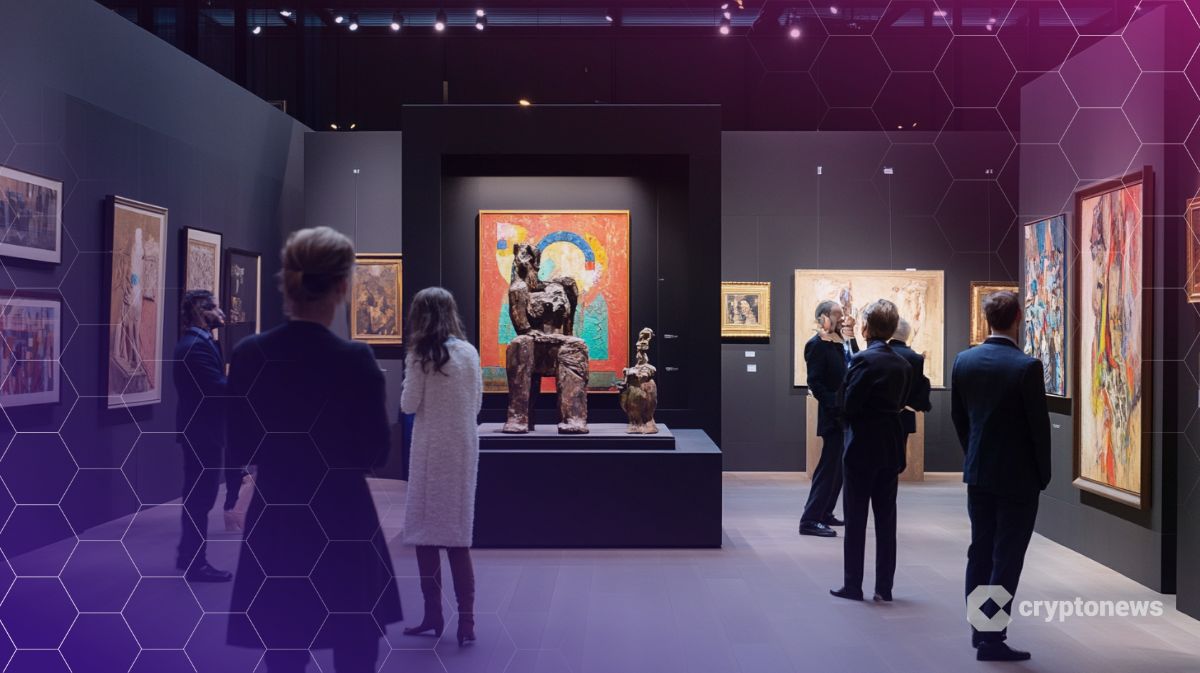Christie’s Axes Standalone NFT Unit as Digital Art Market Cools - What This Means for Crypto’s Cultural Ascent

Another blue-chip player pulls back from the NFT frontier. Christie's, the 258-year-old auction powerhouse, just shuttered its dedicated digital art division—confirming what many have whispered: the speculative frenzy around crypto collectibles has hit a sobering pause.
The Art Market's Reality Check
No sugarcoating it—Christie’s wouldn’t retreat if there were billions on the table. The move signals a market in reset mode, not a dead end. Remember when every influencer and VC suddenly became an art critic? Yeah, those days are over.
Traditional Finance’s Favorite Jab
Let’s be real—watching old-money institutions dabble in NFTs was like watching your dad dance at a wedding. A little awkward, kinda endearing, but ultimately… cringe. Christie’s exit will have crypto skeptics nodding smugly, as if they knew all along that JPEGs of monkeys wouldn’t replace monetary policy.
But Here’s the Twist…
This isn’t a funeral for NFT art—it’s a filter. The noise fades; real utility remains. Digital ownership isn’t disappearing. It’s just waiting for the next wave of adoption, one that doesn’t rely on hype alone. Christie’s might be out, but the blockchain isn’t going anywhere. Sometimes, retreat isn’t surrender—it’s strategy.
Christie’s Cuts Digital Art VP as NFT Unit Restructures
Two roles were reportedly cut in the process, including the vice president of digital art, though at least one specialist will remain to handle future NFT sales.
Christie’s had been one of the earliest major players in the NFT space, catapulting digital art into the mainstream in March 2021 with the historic $69.3 million Beeple sale.
It later launched a bespoke NFT auction platform and even ventured into crypto real estate.
The latest MOVE reflects broader pressures in the art world. According to the Art Basel & UBS Art Market Report 2025, global art sales dropped 12% to $57 billion last year, with public and private auction house revenues falling 20% to $23 billion.
Digital art adviser Fanny Lakoubay said in an X post that Christie’s restructuring likely stems from these market dynamics.
“Auction houses can’t justify a whole department when it brings in less revenue than the others,” Lakoubay noted.
“It’s not a great public signal, but auction houses focus on secondary sales — it’s still early for digital art to scale in that model.”
A few thoughts about today's news that @ChristiesInc shut down its digital art department as reported by @nowmedia: https://t.co/AqcDDt8HIu
This decision is probably tied to the current art market contraction (see the myriad of articles about this on artnet news). Auction houses…
Some, however, see opportunity in the pullback. Lakoubay suggests the shift could open space for primary market development and for onboarding traditional collectors into the digital realm.
NFT collector and Doomed DAO member Benji pointed to flaws in Christie’s model, rather than market weakness.
There’s a lot of chatter on CT that this reflects weakness in the perceived demand for digital art or that the institutions are no longer coming for our jpegs.
This couldn’t be further from the truth.
This decision by Christie’s recognises that their business model was… https://t.co/suOjw3lJ97
He criticized the auction house’s high commission rates in contrast with emerging Web3-native platforms like Gondi, which charge zero commission.
“This might be Christie’s Kodak moment,” he said. “One less value extractor means more value for collectors and artists.”
NFT Market Cap Rebounds 40% in August, Now at $5.97B
Despite the shake-up, NFT markets aren’t standing still. August saw a resurgence, with market capitalization surging 40% to $9.3 billion, although it has since cooled.
As of today, the total NFT market cap sits at $5.97 billion, up 2% in the last 24 hours.
Top collections like CryptoPunks, Bored APE Yacht Club, and Pudgy Penguins have posted modest gains, indicating that interest in digital collectibles remains intact.
As reported, Metaverse platform The Sandbox is undergoing a transformation following the departure of its co-founders and a majority takeover by Animoca Brands.
Co-founders Sébastien Borget and Arthur Madrid have stepped back from operational roles, with over half of the company’s workforce also let go.
Robby Yung, CEO of Animoca Brands, has been appointed as the new CEO of The Sandbox.

